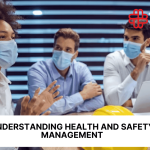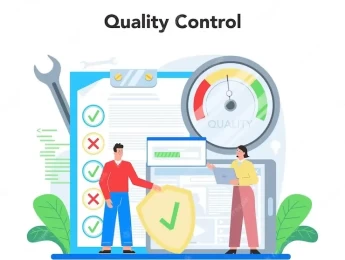Health, Safety, Security, and Environment (HSSE) guidelines and actions are taken to establish and maintain safe and secure working conditions. HSSE reduces the risk of injury and illness, lowers insurance premiums, and enhances employee morale.
This course provides an overview of HSSE principles and practices to help you improve your safety management systems.
You will learn to investigate adverse events and identify and analyse risks, threats, and impacts. In addition, you will examine how corporate resiliency is enhanced by anticipating and proactively responding to crises and emergencies.
Upon completion of this course, participants will be able to:
- Develop effective problem-solving and decision-making skills for emergencies.
- Investigate adverse events and generate successful responses and actions.
- Acquire the essential skills to communicate effectively with all stakeholders.
- Improve your safety and security management skills.
This course is intended for:
- Professionals leading Health & Safety, Security, and Environment projects or departments
- HSSE Managers, Advisors, Directors, and Department Heads
- Anyone interested in developing leadership skills in safety, security, and environment
This course uses a variety of adult learning styles to aid full understanding and comprehension. Participants will review case studies to highlight key areas of importance and possible areas for faults. They will be supplied with the best tools required for learning exercises to improve their skills. Participants will analyse the examples to thoroughly understand how these skills, techniques and methods apply in the workplace.
Day 5 of each course is reserved for a Q&A session, which may occur off-site. For 10-day courses, this also applies to day 10
Section 1: Roles, Responsibilities, Accountability, and Authority in HSSE
- Identify the human factors, triggers, and consequences of accidents.
- Examine conscious and unconscious influences on safety practices.
- Review the types of psychology and their impact on behaviour: behavioural, cognitive, and effective.
- Describe practical ways to improve your Safety Management Systems (SMSs).
- Improve your leadership and communication skills.
- Discuss how to leverage social media.
Section 2: Risks, Threats, and Impacts
- Identify and assess the probability, severity and exposure
- Outline strategies to identify and manage risk.
- Examine major hazards and related prevention methods.
- Describe the ISO 31000:2018 framework for risk management and safety excellence.
- Discuss occupational and process safety.
- Review inspection and auditing techniques.
Section 3: Emergency Preparedness Response, Crisis Management & Business Resilience
- Identify stakeholders for emergency response plans and control centres.
- Examine ways to manage the response: operational, tactical, and strategic.
- Discuss the importance of on-scene management.
- Outline the critical functions to run consistently in times of change or crisis.
- Describe plans for business continuity, resilience, and recovery.
- Summarise mutual aid agreements and the on and off-site outcomes.
Section 4: Investigating and reporting incidents and accidents
- Discuss the importance of thoroughly and professionally investigating incidents.
- List the six steps for successful investigations and describe the checklist and process used by investigators..
- Outline the roles of the HSSE leaders and management during an investigation.
- Describe the value of listening and learning.
- Review report writing techniques that induce and enable appropriate action.
Section 5: Manage security, planning, and asset protection
- Outline an HSSE security survey and evacuation techniques.
- Identify key physical security and identification points.
- Examine information and cyber security and data protection.
- Review the organisation and deployment of security personnel.
- Explore the impacts of a loss of reputation.
- Discuss special risks: bomb warnings, terrorism, and search techniques.
Upon successful completion of this training course, delegates will be awarded a Holistique Training Certificate of Completion. For those who attend and complete the online training course, a Holistique Training e-Certificate will be provided.
Holistique Training Certificates are accredited by the British Assessment Council (BAC) and The CPD Certification Service (CPD), and are certified under ISO 9001, ISO 21001, and ISO 29993 standards.
CPD credits for this course are granted by our Certificates and will be reflected on the Holistique Training Certificate of Completion. In accordance with the standards of The CPD Certification Service, one CPD credit is awarded per hour of course attendance. A maximum of 50 CPD credits can be claimed for any single course we currently offer.
- Course Code PO2-108
- Course Format Classroom, Online,
- Duration 5 days














